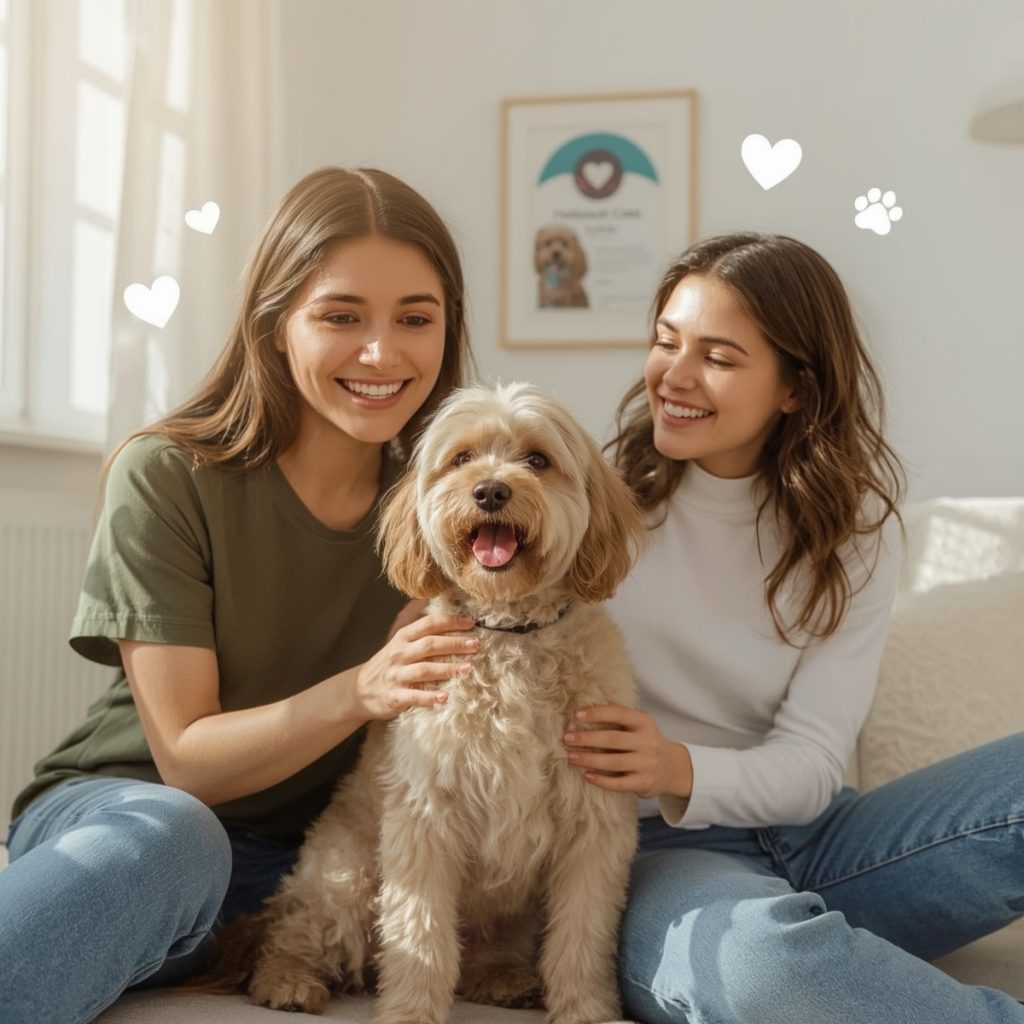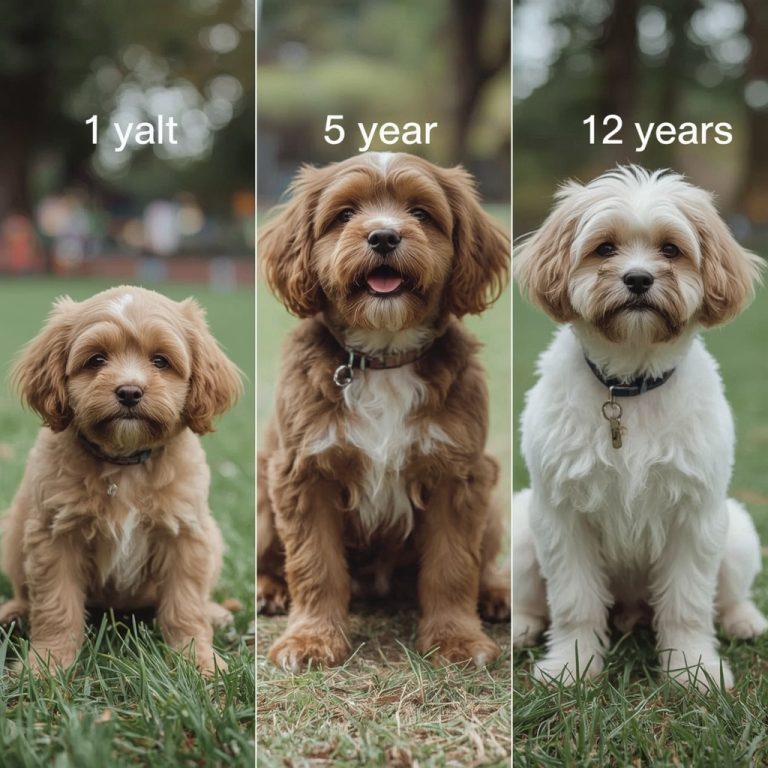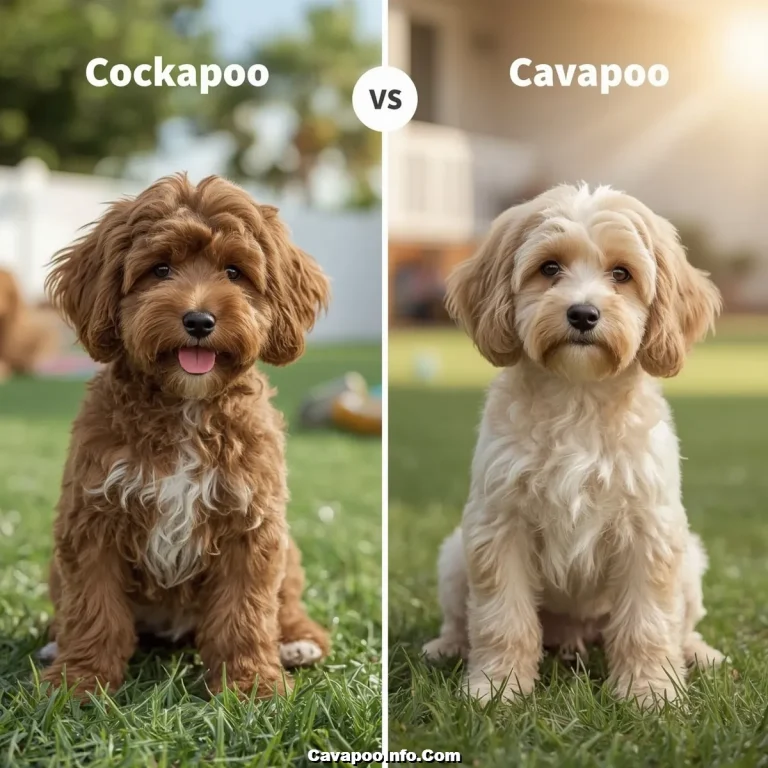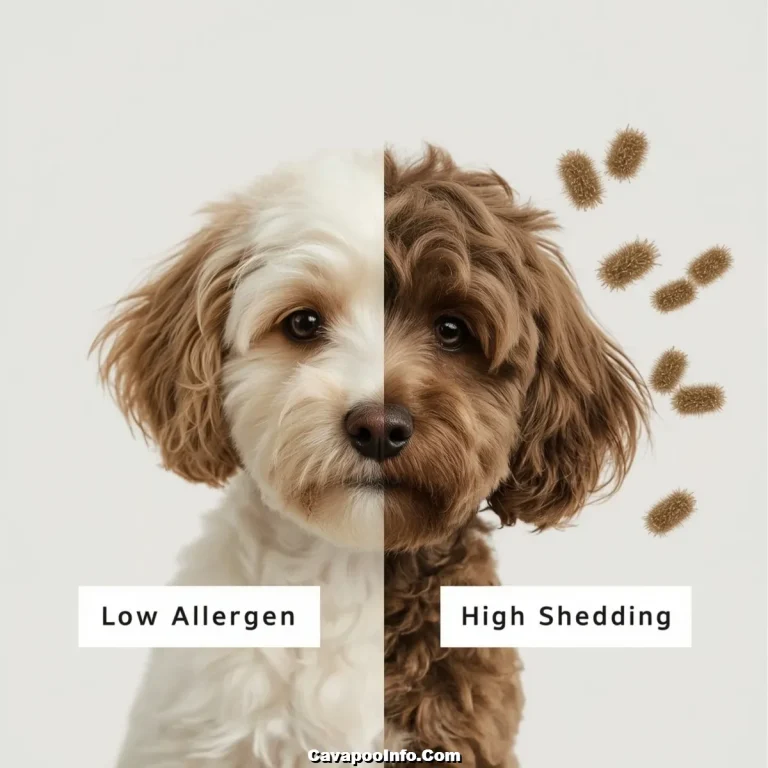Cavapoo Health Issues: Common Problems, Prevention Tips & Expert Care Guide

Cavapoos, a crossbreed between Cavalier King Charles Spaniels and Poodles, are beloved for their friendly and affectionate nature. However, like all dogs, they are prone to certain health issues. While hybrid breeds like Cavapoos may benefit from hybrid vigor (reduced risk of some inherited conditions), they can still develop health problems inherited from their parent breeds.
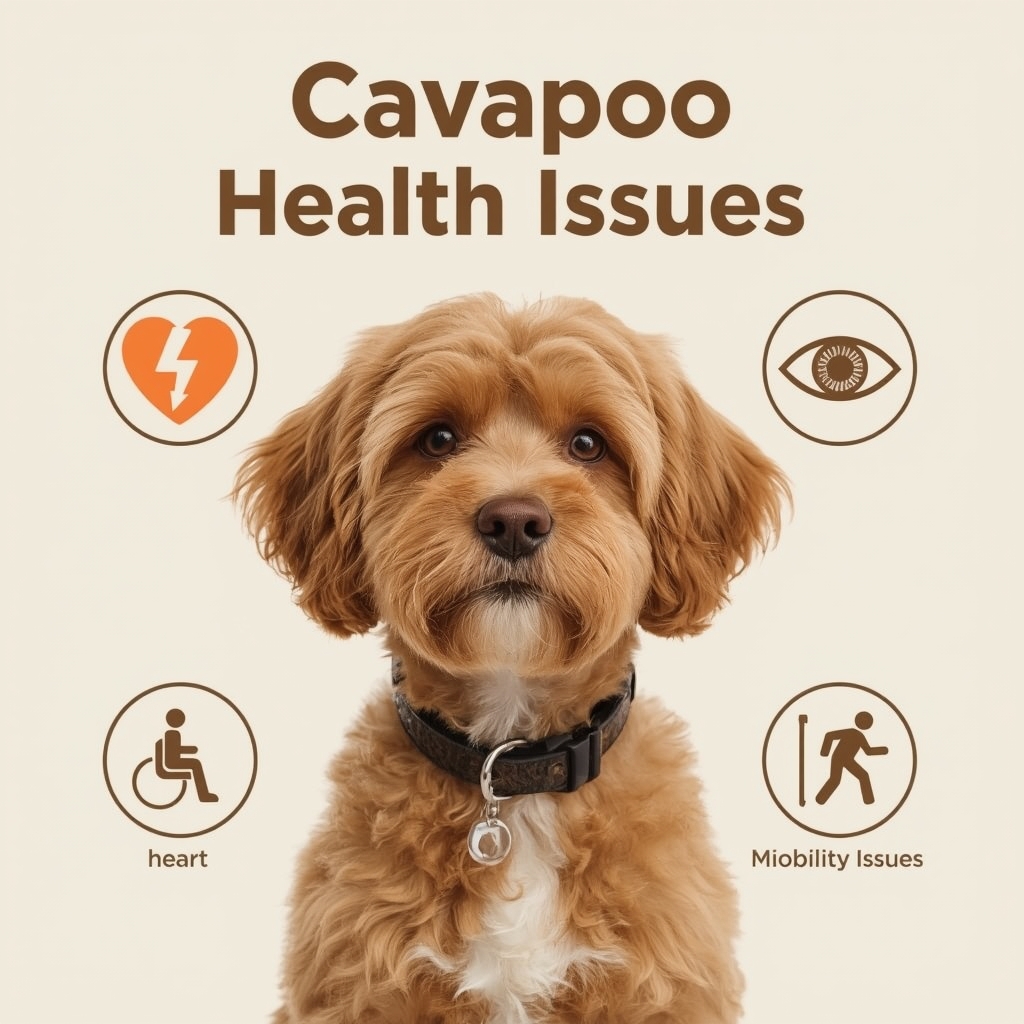
In this comprehensive, vet-reviewed guide, we’ll explore the most common Cavapoo health issues, their symptoms, and actionable care tips to keep your furry friend healthy and happy. Whether you’re a new or experienced Cavapoo owner, this guide will help you provide the best care for your dog.
Top 7 Cavapoo Health Problems You Need to Know:
Cavapoos inherit traits from both the Cavalier King Charles Spaniel and Poodle breeds, which means they can be prone to specific health issues. Here’s a breakdown of the most common problems and how to address them:
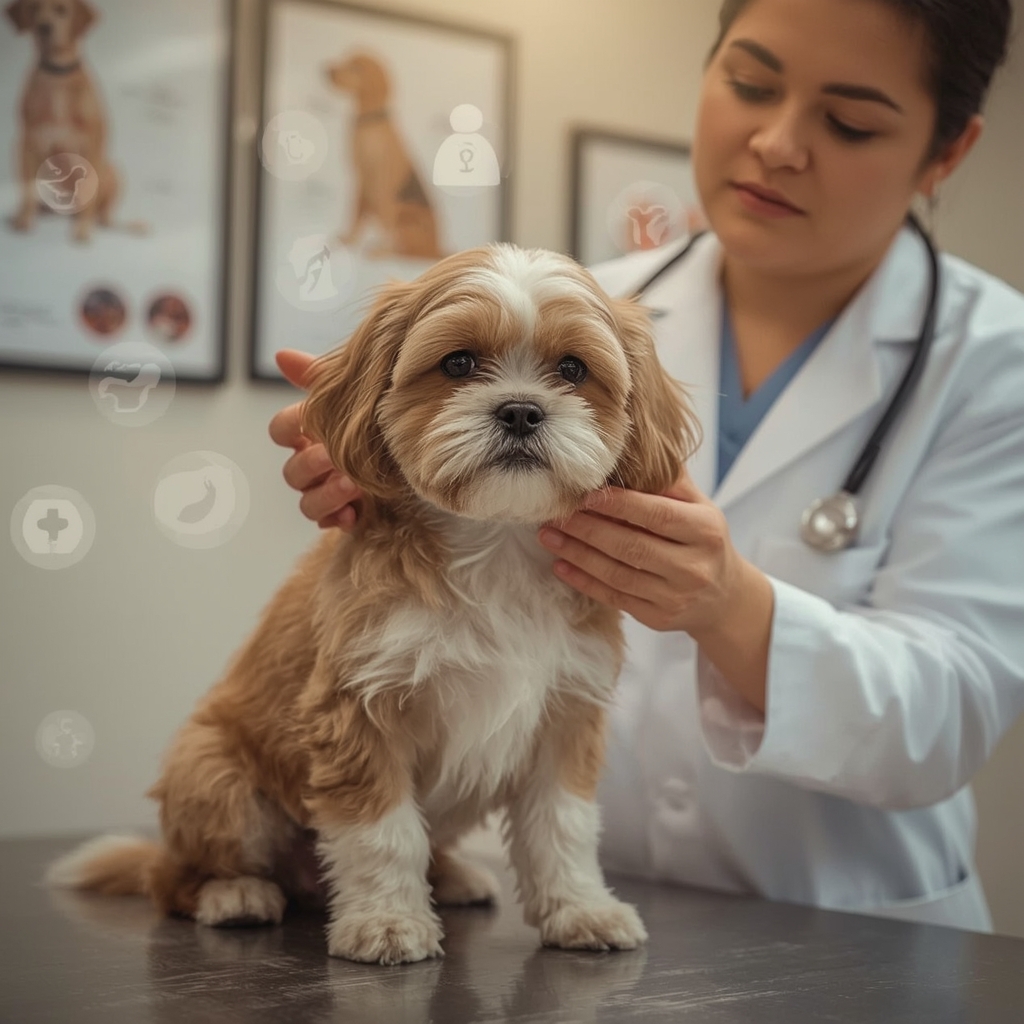
1. Cavapoo Dental Issues: Prevention and Treatment
Cavapoos have small, overcrowded mouths, which can lead to plaque buildup, tartar, and dental diseases like cavities or gum infections. According to the American Veterinary Dental College (AVDC), small breeds are particularly prone to periodontal disease, which can lead to systemic health issues if untreated
Symptoms to Watch For:
- Bad breath
- Difficulty eating
- Red or swollen gums
Prevention Tips:
- Brush your Cavapoo’s teeth daily with dog-friendly toothpaste.
- Provide dental chews or toys approved by the Veterinary Oral Health Council (VOHC).
- Schedule regular dental check-ups with your vet for professional cleanings.
2. Cavapoo Allergies: Symptoms and Solutions
Cavapoos can develop allergies to food, pollen, dust, or fleas. These allergies can cause discomfort and require prompt attention. According to a 2021 study published in Veterinary Dermatology, food allergies affect approximately 10% of dogs, with common allergens including beef, chicken, and dairy.
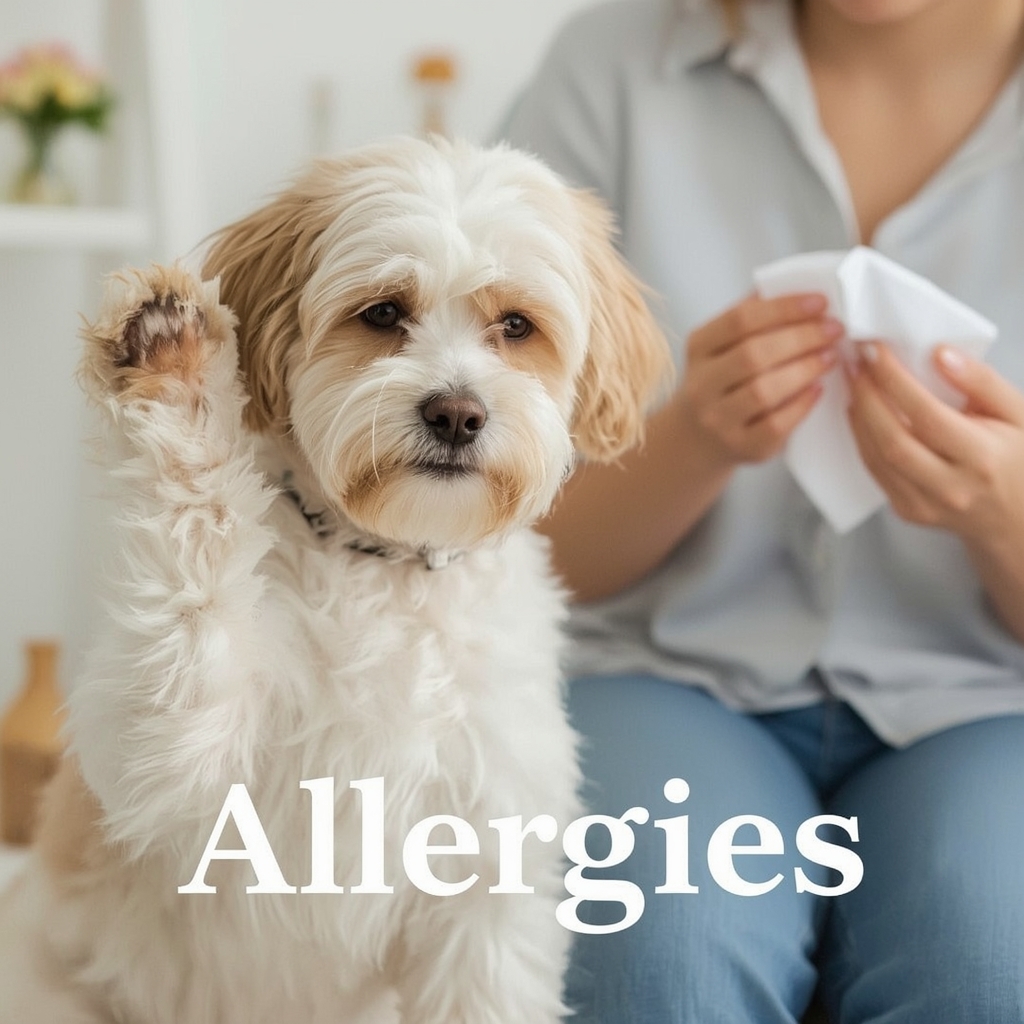
Common Symptoms:
- Itchy skin or excessive scratching
- Red, watery eyes
- Sneezing or coughing
- Swollen paws
Treatment Options:
- Visit your vet for allergy testing.
- Use hypoallergenic shampoos and medications.
- Switch to a hypoallergenic diet if food allergies are suspected.
3. Cavapoo Joint and Bone Issues:
As Cavapoos age, they may develop joint problems like hip dysplasia or luxating patellas (misaligned kneecaps). The Orthopedic Foundation for Animals (OFA) reports that small breeds are at risk for these conditions, especially if they are overweight.
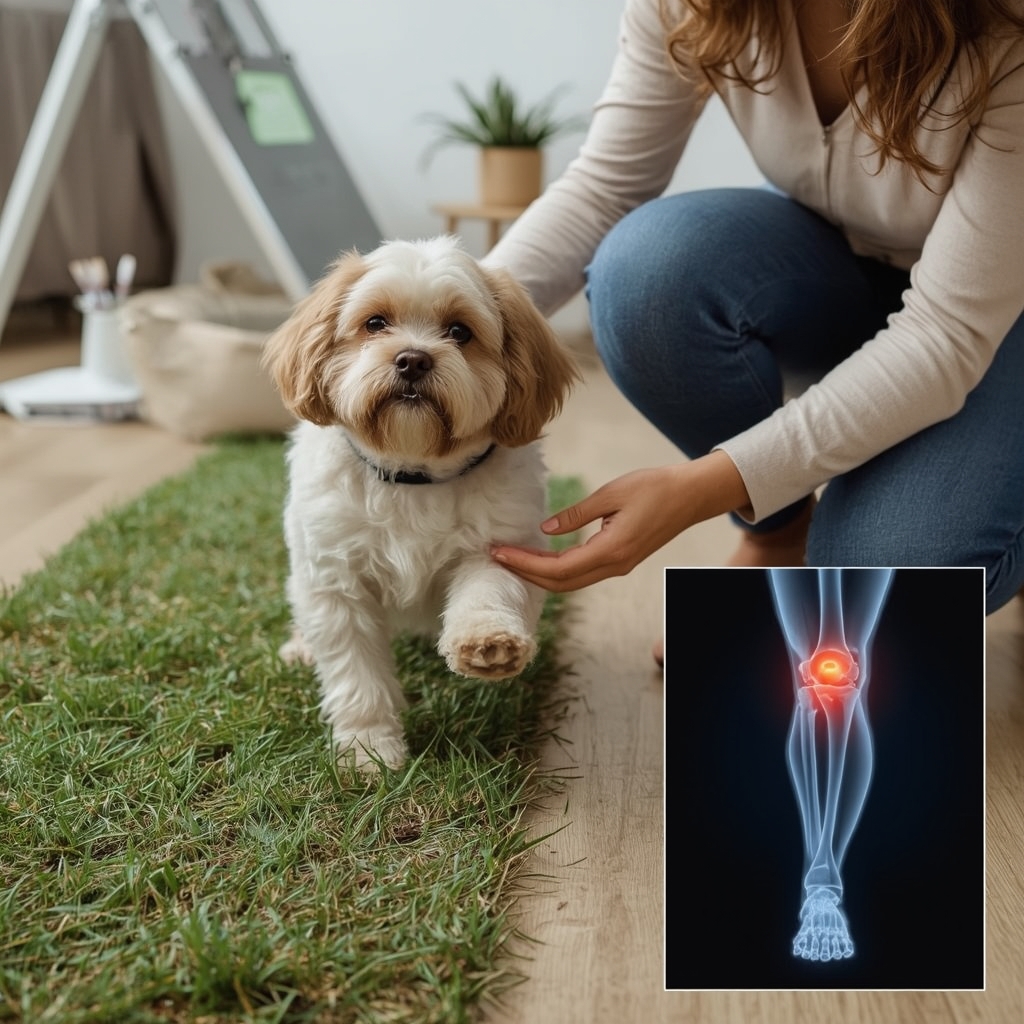
Symptoms to Watch For:
- Limping or stiffness
- Difficulty jumping or climbing stairs
- Reluctance to exercise
Prevention and Care:
- Maintain a healthy weight to reduce joint stress.
- Provide joint supplements like glucosamine.
- Ensure regular vet check-ups to catch issues early.
4. Cavapoo Eye Problems: What to Look For
Cavapoos are prone to hereditary eye conditions like cataracts and Progressive Retinal Atrophy (PRA). The Canine Eye Registry Foundation (CERF) recommends annual eye exams for breeds predisposed to these conditions.
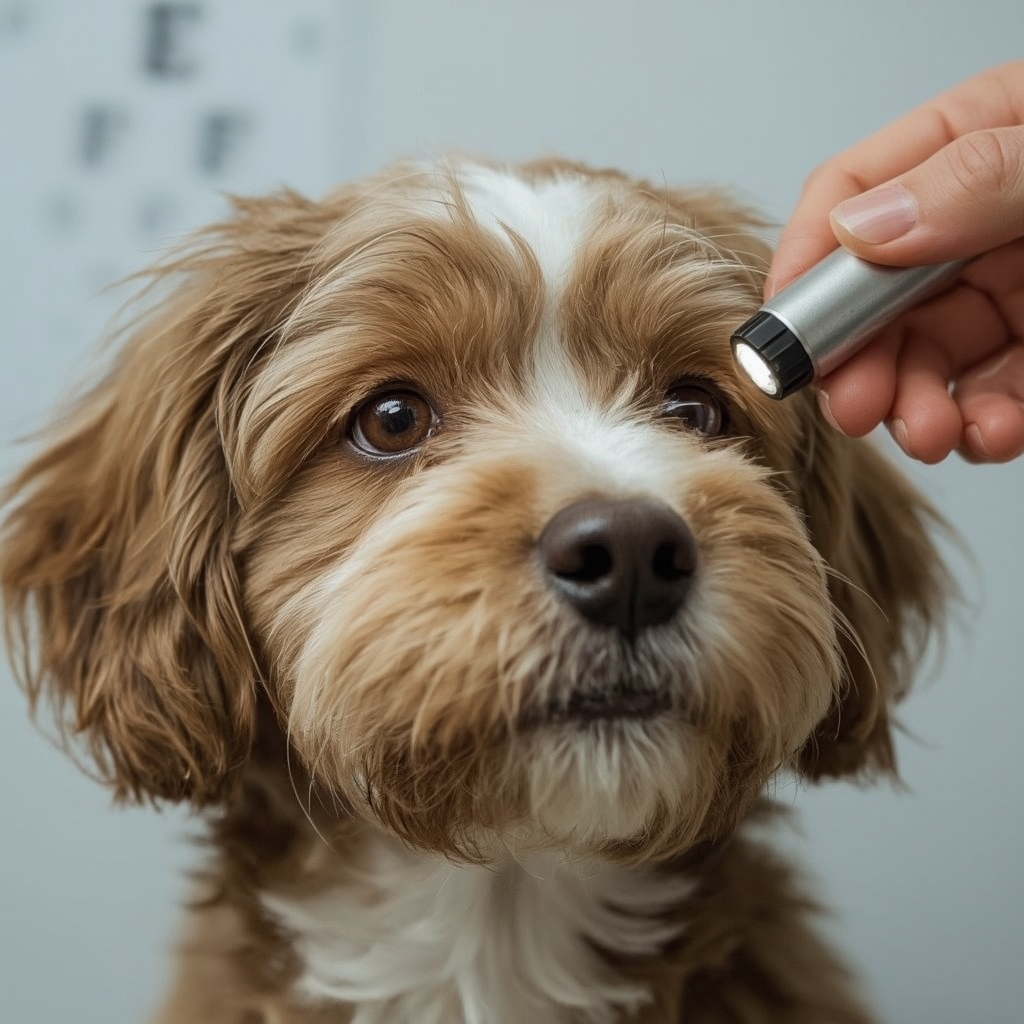
Symptoms to Watch For:
- Cloudy eyes
- Difficulty seeing in low light
- Bumping into objects
Prevention Tips:
- Schedule annual eye exams with your vet.
- Keep their eyes clean and free of discharge.
5. Cavapoo Ear Infections: Causes and Treatment
Their floppy ears make Cavapoos more susceptible to ear infections due to moisture buildup. According to the American Kennel Club (AKC), regular ear cleaning is essential for breeds with floppy ears.
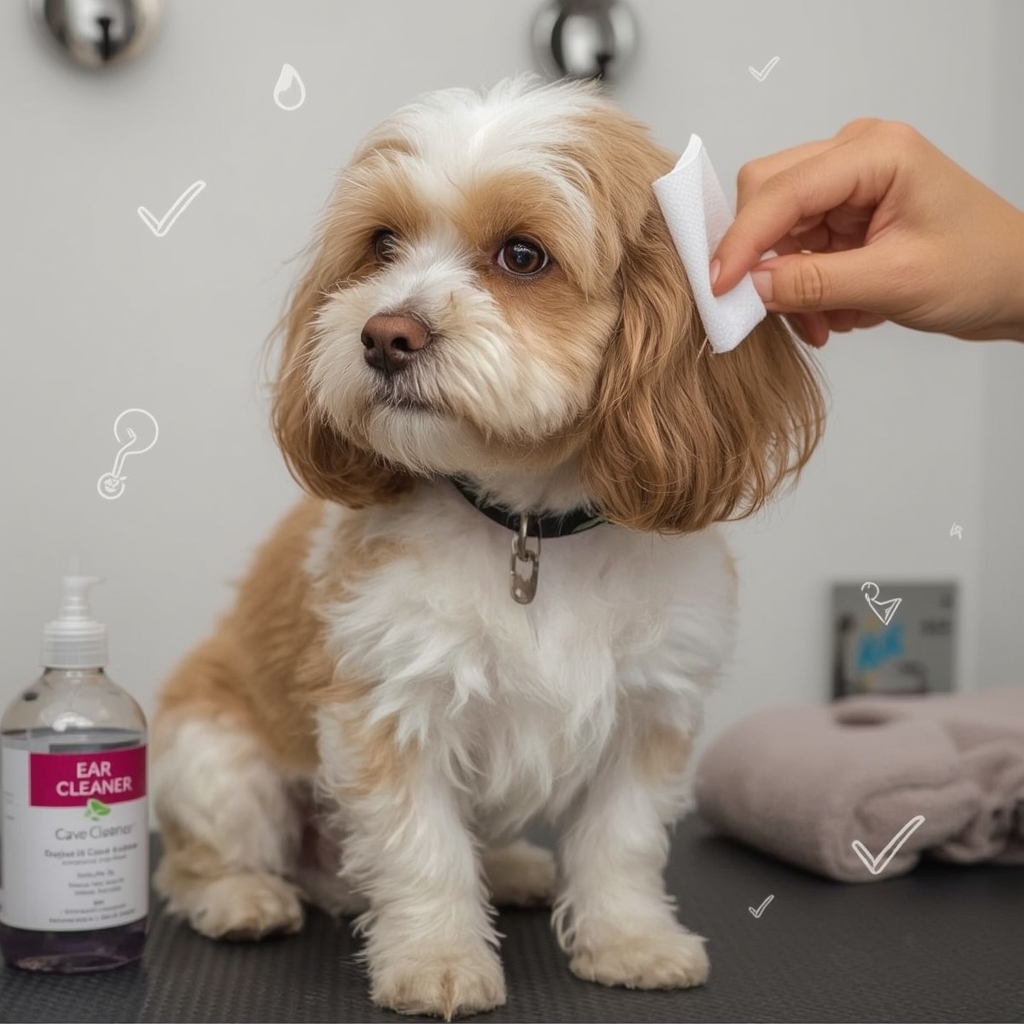
Symptoms to Watch For:
- Frequent head shaking
- Scratching at ears
- Foul odor from ears
Prevention Tips:
- Clean their ears weekly with a vet-approved cleaner.
- Dry their ears thoroughly after baths or swimming.
6. Cavapoo Heart Health: Mitral Valve Disease
Cavapoos can inherit heart conditions like mitral valve disease from their Cavalier King Charles Spaniel lineage. The American Heartworm Society emphasizes the importance of regular heart health check-ups for at-risk breeds.
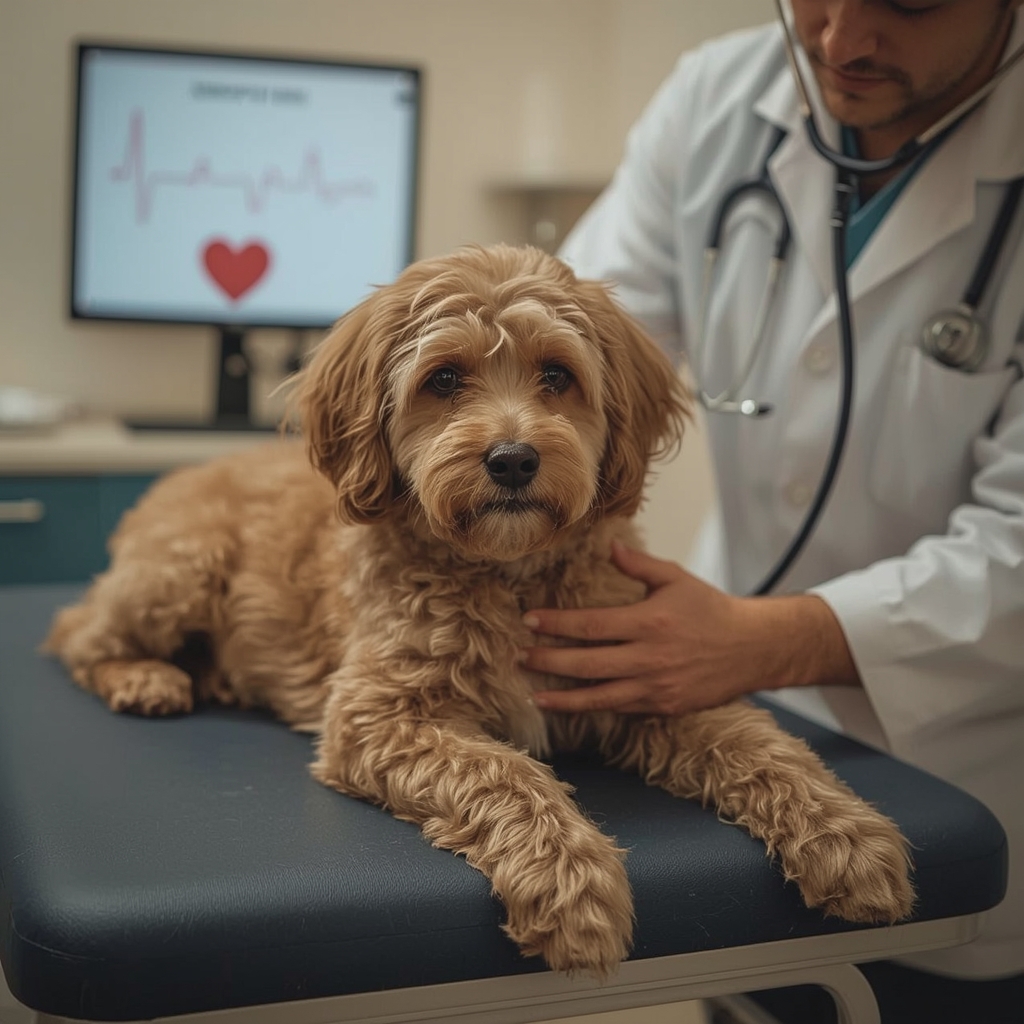
Symptoms to Watch For:
- Coughing
- Difficulty breathing
- Fatigue after minimal activity
Prevention Tips:
- Feed a heart-healthy diet.
- Schedule regular vet check-ups to monitor heart health.
7. Cavapoo Epilepsy: Managing Seizures
Epilepsy can cause seizures in Cavapoos, which can be distressing for both the dog and owner. The Epilepsy Foundation notes that seizures in dogs can often be managed with medication and lifestyle adjustments.
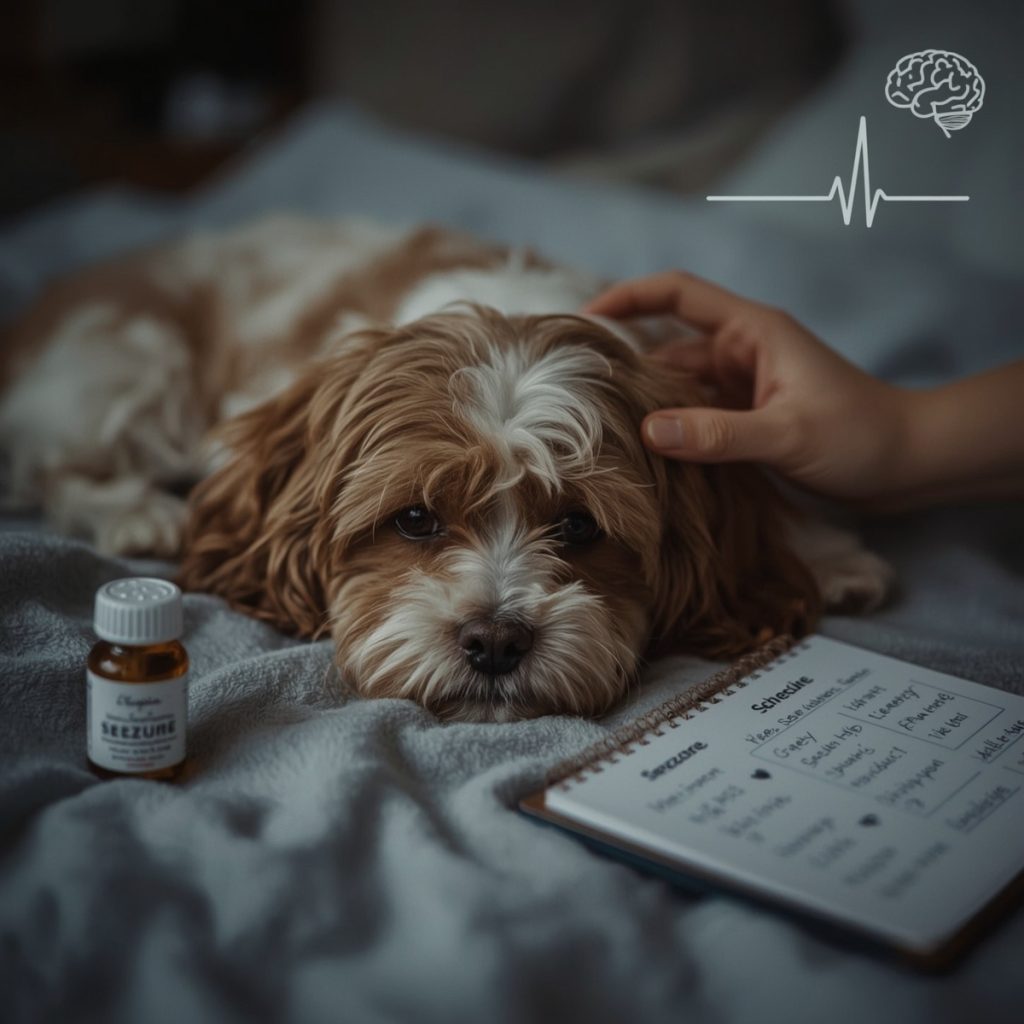
Symptoms to Watch For:
- Uncontrolled shaking
- Loss of consciousness
- Drooling or foaming at the mouth
Treatment Options:
- Consult your vet for anti-seizure medications.
- Ensure a safe environment during seizures.
How to Keep Your Cavapoo Healthy: Expert Care Tips
Maintain your Cavapoo’s health by doing the following;
- Balanced Diet:
- Feed high-quality dog food rich in protein, healthy fats, and fiber.
- Avoid common allergens like beef, chicken, wheat, and dairy if your Cavapoo has sensitivities.
- Consult your vet for a personalized diet plan.
- Regular Exercise:
- Provide daily walks and playtime to keep your Cavapoo fit and active.
- Avoid overexertion, especially in hot weather.
- Routine Vet Check-ups:
- Schedule annual visits for vaccinations and health screenings.
- Older Cavapoos may need check-ups every 6-8 months.
- Dental Care:
- Brush their teeth daily and provide dental treats approved by the VOHC.
- Grooming:
- Regularly clean their ears, trim nails, and brush their coat to prevent infections.
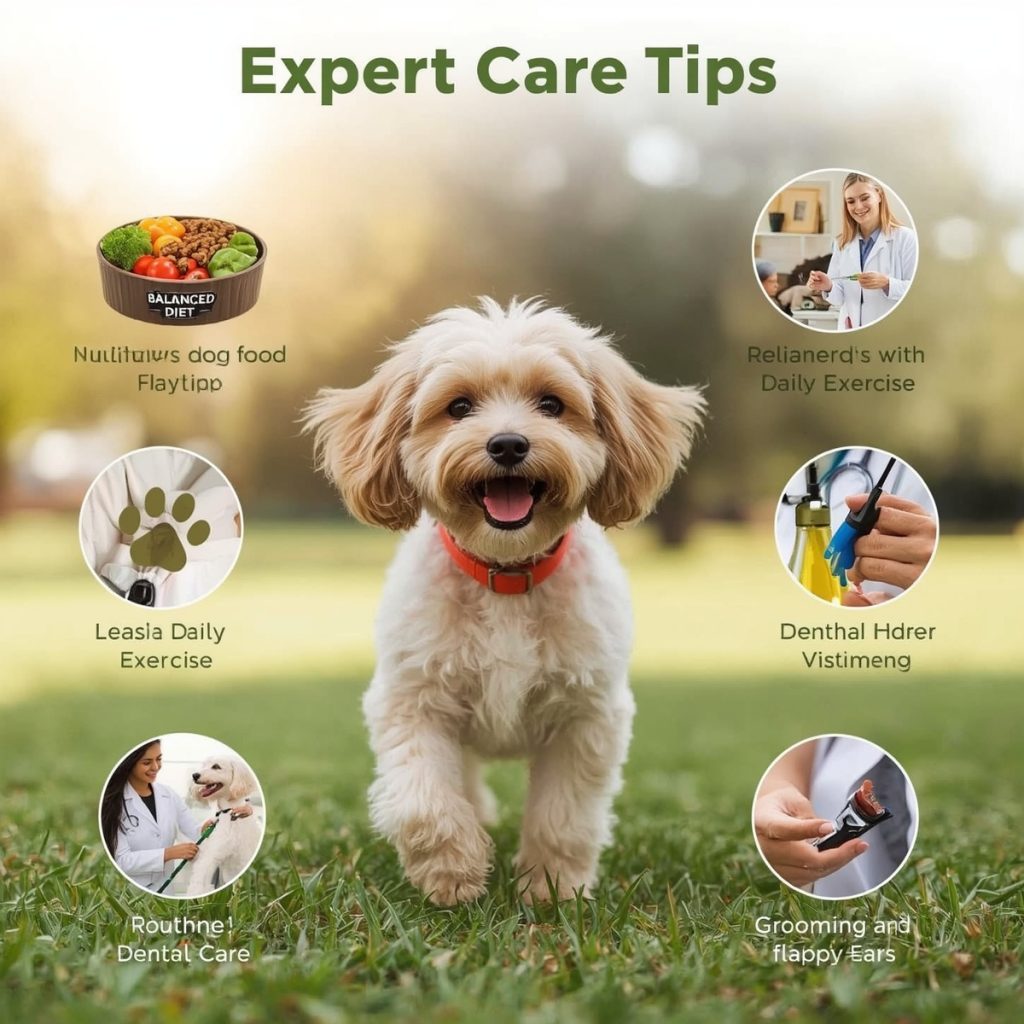
Food Allergies in Cavapoos: A Comprehensive Guide
Food allergies are common in Cavapoos and can cause significant discomfort. According to a 2020 study in BMC Veterinary Research, food allergies account for 10-15% of all allergic reactions in dogs.
Common Allergens:
Dogs get food allergies very easily and it becomes very painful and tiring for them and the owner to overcome the problem. Some of the common foods that cause allergies in Cavapoos are the following:
- Beef
- Chicken
- Dairy
- Wheat
- Corn
- Soy
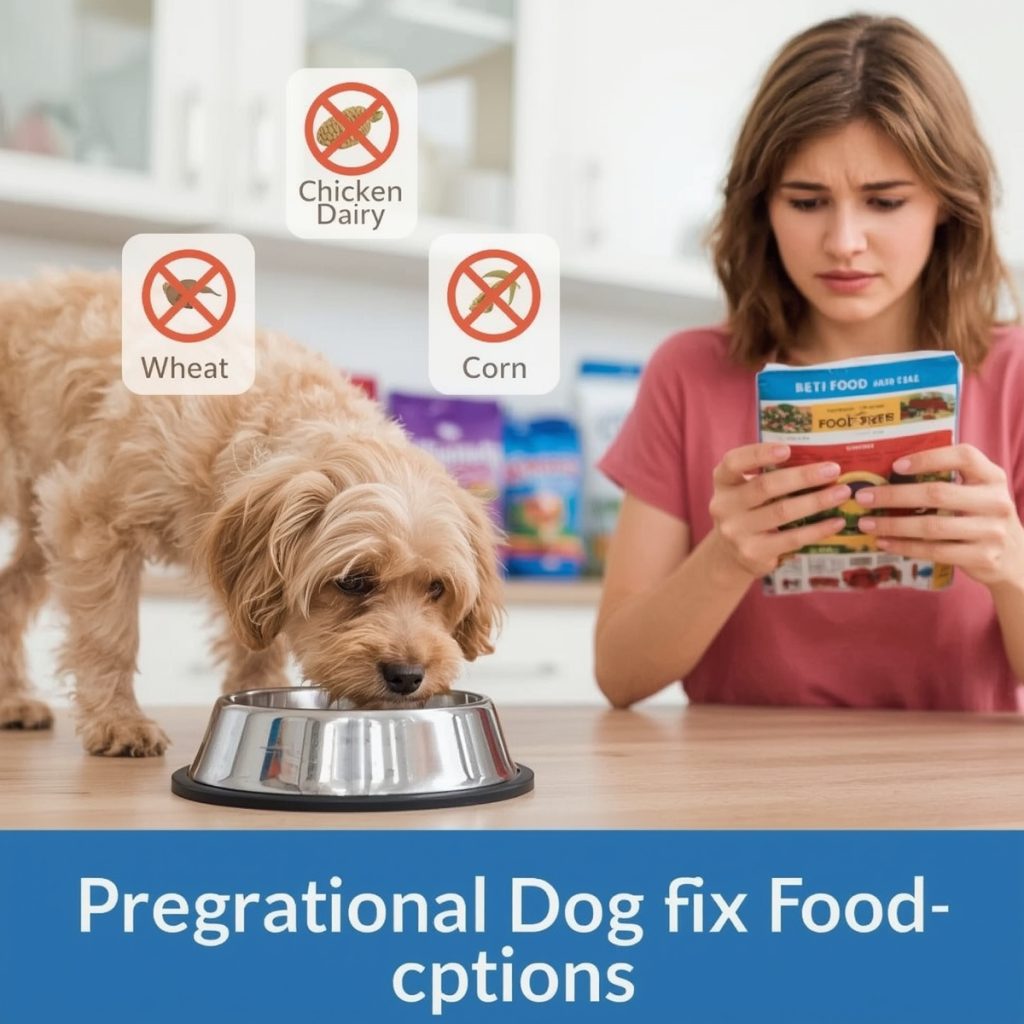
A dog owner needs to read the labels on the dog foods and avoid feeding the Cavapoo foods containing these components.
Symptoms of Food Allergies:
In case your Cavapoo is suffering from a food allergy, you are likely to notice the following symptoms:
- Pruritic dermatitis:
- The general itching sensation around the eyes, paws, or ears.
- Recurrent otitis:
- Recurrent infections or inflammation of the ear.
- Gastrointestinal upset:
- This is the condition of vomiting, diarrhea, or distension after meals.
- Paw licking or chewing:
- This is usually an exaggerated behavior because dogs chew their paws excessively.
- Redness of inflamed skin:
- This is the condition of rash or hot spots on the skin.
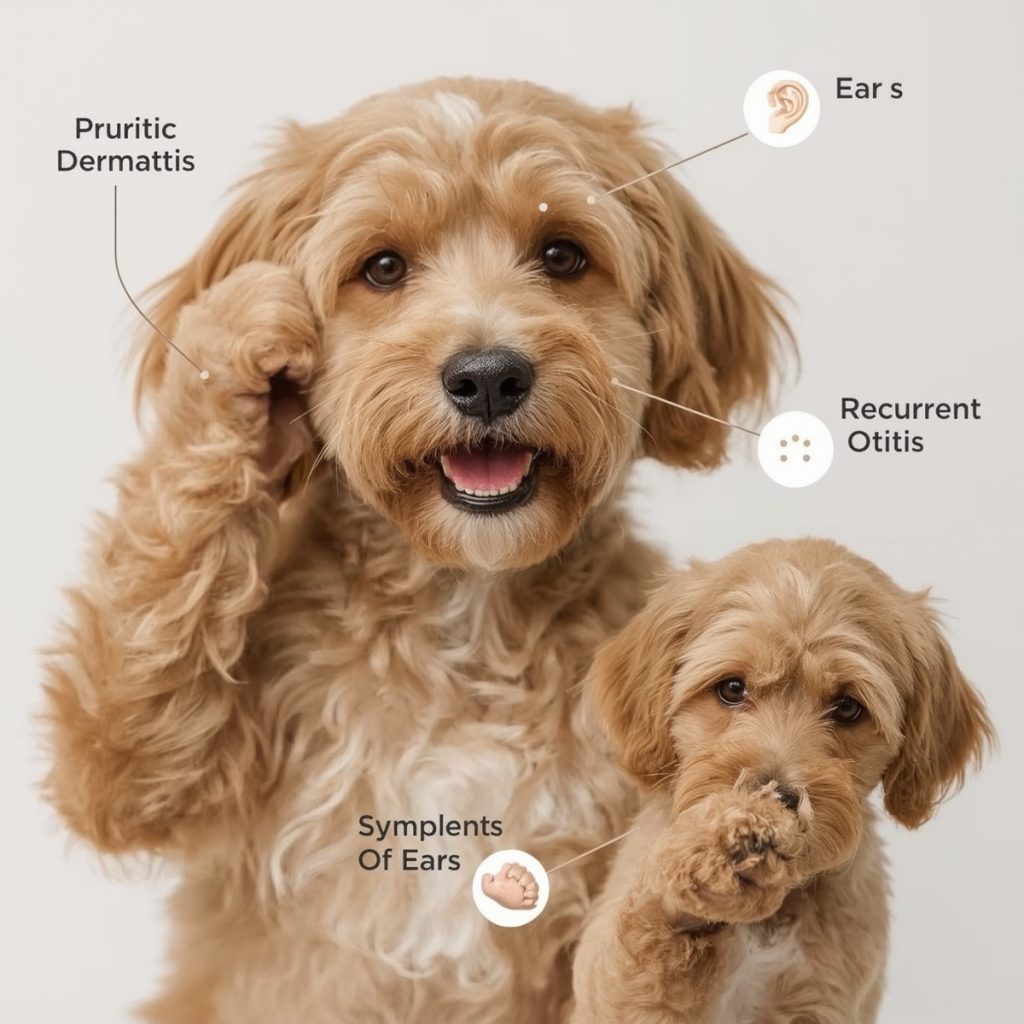
Diagnosis and Treatment:
If you have a doubt that your Cavapoo is suffering from a food allergy, then you must visit your vet. Your vet can provide you with the removal diet. On this diet, your vet will get rid of the suspected foods from the diet of your dog and find out which one is the allergen.
Your vet can put your dog on a special diet that comprises proteins and carbohydrates to which your dog is not accustomed. After some weeks have passed, your vet is going to start feeding your dog some of the foods you have been excluding and observe if the symptoms reappear.
Management of Food Allergies:
Once you discover the allergen, controlling an allergy in a Cavapoo is a diet that is free of that allergen. You do this either with hypoallergenic dog food or home-cooked food by your veterinarian. Supplemental use also calms itchy and inflamed skin in some dogs with the addition of omega-3 fatty acids.
Expert Tips for Cavapoo Owners:
With some tips to follow, the owner can get around most of the allergy issues that can cause many health complications to their loved pets. Some of the tips are shared below.
- Monitor their diet:
- Make sure to check the ingredients in your dog’s food, treats, and even medications to avoid allergens.
- Choose hypoallergenic treats:
- Many stores have hypoallergenic dog treats that are safe for dogs with food sensitivities
- Follow the correct diet plan:
- Once you identify the allergen, stick to feeding the right food to avoid allergic reactions.
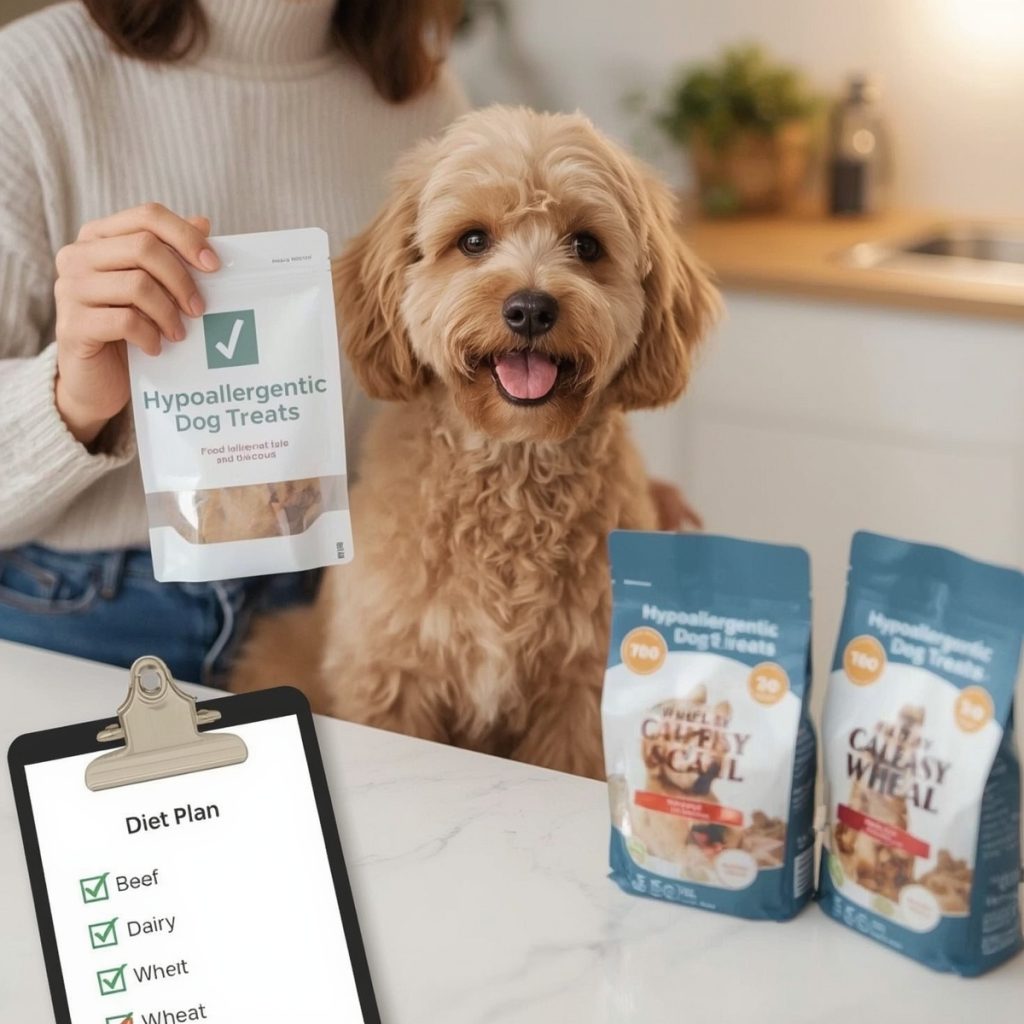
With proper management of diet and looking out for symptoms, you can keep your Cavapoo healthy and happy even with food allergies
Final Thoughts:
Cavapoos are wonderful companions, but they require proper care to stay healthy. By understanding their common health problems and following the tips in this guide, you can ensure your Cavapoo lives a long, happy, and healthy life. Always consult your veterinarian for personalized advice and care.
